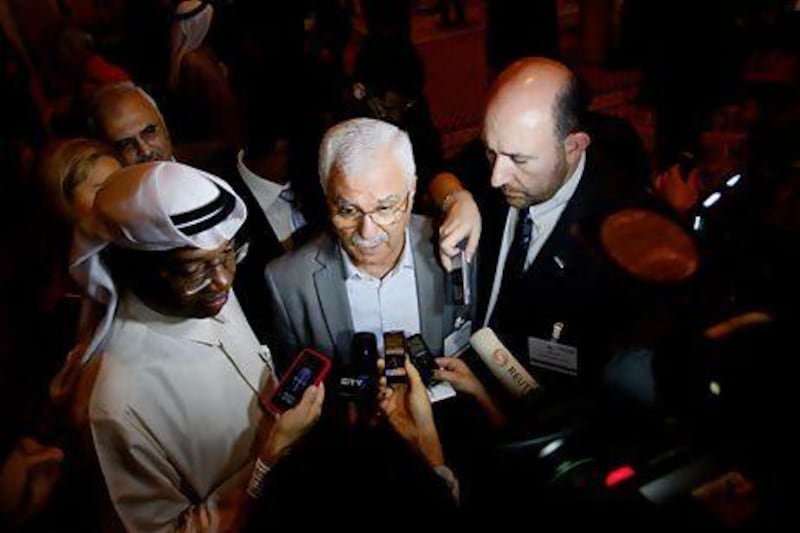The Syrian opposition is looking to the UAE to help to kick-start a modern day Marshall Plan to rebuild the country's shattered economy.
Hundreds of business people from across the Emirates gathered in Dubai yesterday to hear the leader of the Syrian National Council (SNC) call on business leaders to fund a relief effort aimed initially at supplying opposition-held territory.
"The transition phase in Syria has indeed begun," George Sabra, the chairman of the SNC told business chiefs. "What we can describe as an economic Marshall Plan for Syria cannot be delayed until the current regime fully collapses."
The long-standing regime critic, who was elected to lead the SNC earlier this month, urged an audience of top industrialists, property developers and financiers to back the economic road map of the revolution.
More than 36,000 people are estimated to have been killed during the 20-month uprising against the regime of Bashar Al Assad, the Syrian president.
As many as two million homes have been destroyed across the country, which is expected to demand billions of dollars in future investment.
That is expected to involve companies from the Emirates. Economic ties between the two countries were strong even before the outbreak of war with companies such as the property developer Emaar operating in Syria.
There is also a large Syrian business community based in the Emirates that the Syrian opposition is keen to mobilise.
Osama Kadi, the general coordinator of the Syrian Economic Task Force, estimates that the country would need more than US$1 billion (Dh3.67bn) a month just to pay its vast public sector payroll, which is made up of some 1.3 million employees.
There are about 5 million Syrians displaced inside and outside the country, according to task force estimates.
"This is a historical opportunity for the business community to invest in our beloved Syria and build modern homes for Syrians while benefiting and profiting from safe, rewarding and creative investment schemes," said Mr Kadi.
Abu Faisal, a businessman involved in the construction sector, said he wishes to start up construction projects that are sustainable and will lead to job opportunities.
"We need a labour-intensive construction process that could be easily taught and repeatable. People need to work. Donor money will eventually run out. Where do you go from there?" he said.
Abu Faisal has sent cash payments for blankets for Syrians as the winter moves into full force. "But we made sure that the blankets were locally produced, to help boost jobs.
"People would much rather work, than take money handouts."
Mohamed Ayman Bashi, a board member of Syria Gulf Bank, said "oil revenues, worth billions of dollars, for years on end has not found its way back to the economy. It is not seen in the public budget. The country needs a change of guard, where accountability and transparency are the main pillars of the economy".





